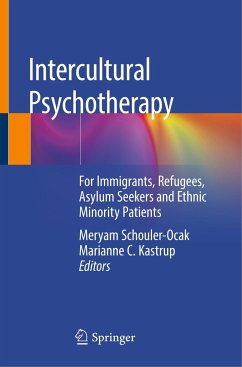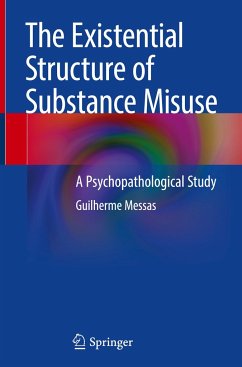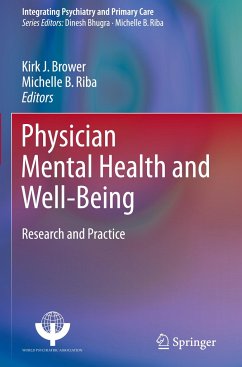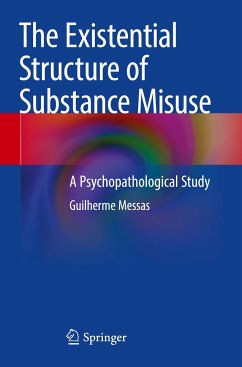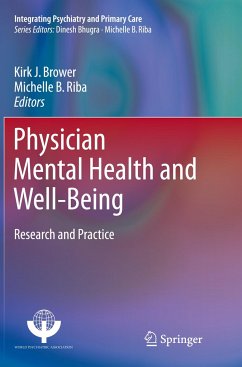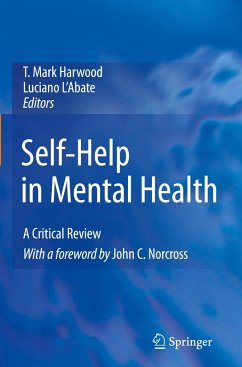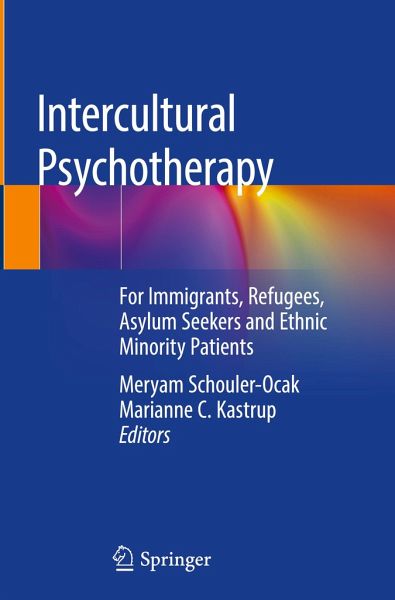
Intercultural Psychotherapy
For Immigrants, Refugees, Asylum Seekers and Ethnic Minority Patients
Herausgegeben: Schouler-Ocak, Meryam; Kastrup, Marianne C.

PAYBACK Punkte
57 °P sammeln!
This book is intended to sensitise psychotherapists, to strengthen practitioners' intercultural competence and to encourage them to form psychotherapeutic relationships with people with an immigration background who are suffering from mental health problems. In this context, intercultural psychotherapy refers to the therapeutic work between psychotherapists and patients who hail from different cultural contexts, which often considerably hampers language- and culture-based understanding. In the current context of globalisation and growing crises around the world, an increasing number of people ...
This book is intended to sensitise psychotherapists, to strengthen practitioners' intercultural competence and to encourage them to form psychotherapeutic relationships with people with an immigration background who are suffering from mental health problems. In this context, intercultural psychotherapy refers to the therapeutic work between psychotherapists and patients who hail from different cultural contexts, which often considerably hampers language- and culture-based understanding. In the current context of globalisation and growing crises around the world, an increasing number of people with a migration background require psychotherapeutic treatment; as a result, intercultural psychotherapy may well become the rule rather than the exception. Psychotherapists are therefore challenged to adapt to such a context. Overcoming these barriers requires certain competencies such as working with a qualified interpreter. Contributions from international experts from the field of intercultural psychotherapy provide vital insights into the theory and practice of intercultural work with patients suffering from conditions such as PTSD, depression, anxiety, personality disorders and schizophrenic disorders. These interdisciplinary specialists describe their work, share valuable lessons learned, and put forward concrete recommendations.



